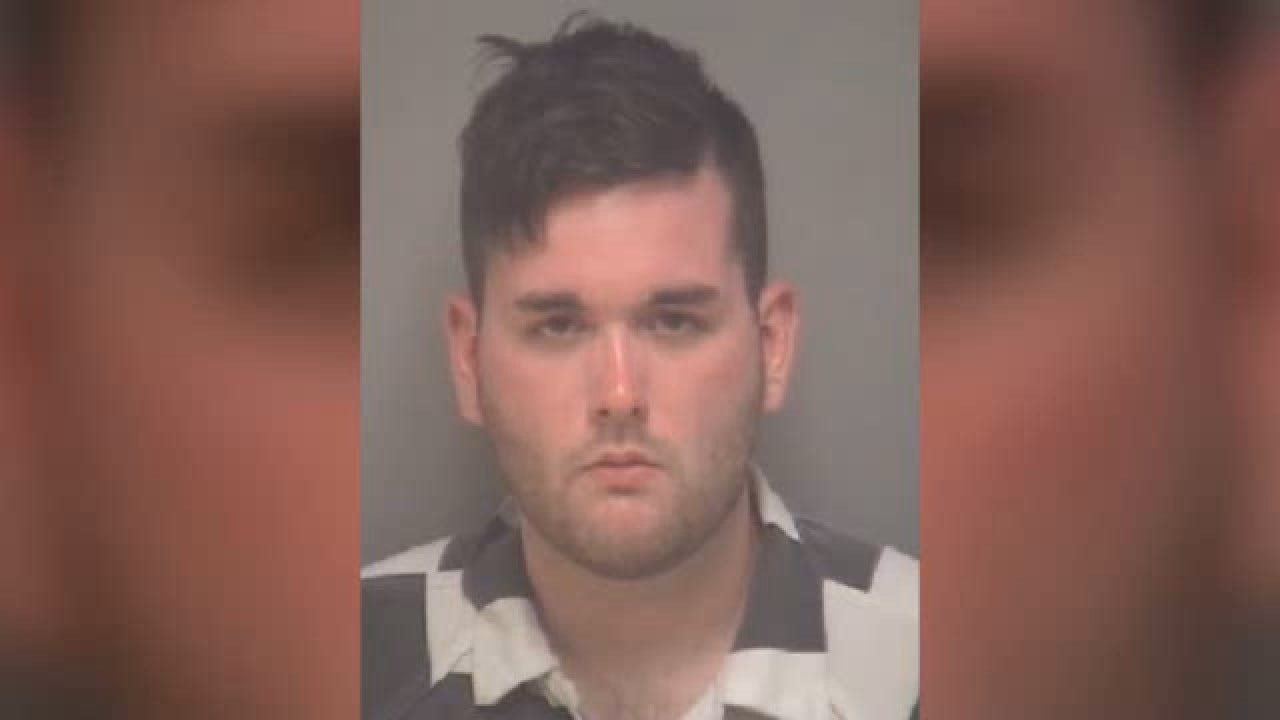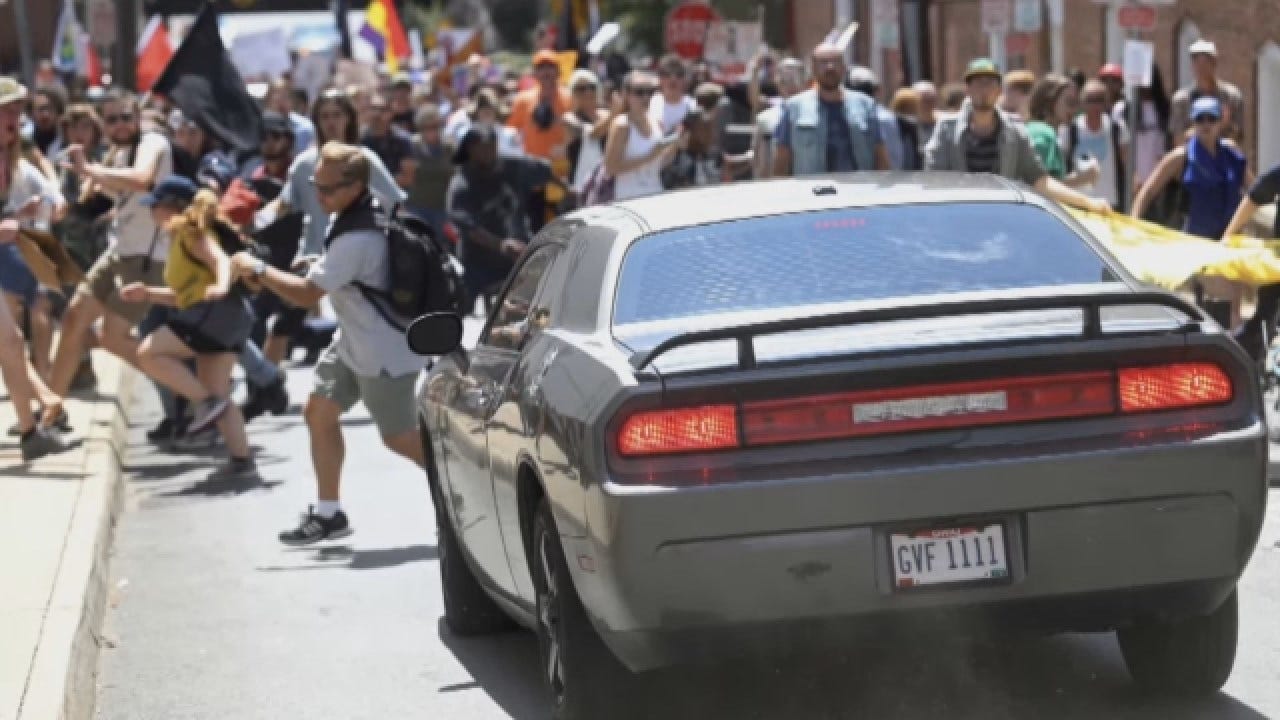Fields drove to Virginia from his home in Maumee, Ohio, to support the white nationalists. After the rally, as a large group of counterprotesters marched through Charlottesville singing and laughing, he stopped his car, backed up, then sped into the crowd, according to testimony from witnesses and video surveillance shown to jurors.
Wednesday Bowie, a counter protester who got caught on the trunk of Fields' car when he backed up and was then slammed into a parked truck and thrown to the ground, told the jury that in addition to a broken pelvis and other physical injuries. She said she has been hospitalized three times for post-traumatic stress disorder over the past year.
"Please know that the world is not a safe place with Mr. Fields in it," Bowie said.
The Unite the Right rally had been organized in part to protest the planned removal of a statue of Confederate Gen. Robert E. Lee. Hundreds of Ku Klux Klan members, neo-Nazis and other white nationalists — emboldened by the election of President Trump — streamed into the college town for one of the largest gatherings of white supremacists in a decade. Some dressed in battle gear.
Afterward, Mr. Trump inflamed tensions even further when he said "both sides" were to blame, a comment critics saw as a refusal to condemn racism.
Heyer's mother, Susan Bro, spoke to CBS News on the anniversary of her daughter's death. She said it was "difficult to say" if the country had made progress since the deadly attack.
"What appeared to be closer together a year ago was not truly close together. It was more of an artificial covering over deep-seated wounds, a deep seated-infection in our society," Bro said. "I think last year's eruption gives us a little better understanding of how bad it is so that we can gradually and slowly heal. If you rush to heal, if you rush to grab each other and sing Kumbaya, we will be back here in a few years."











